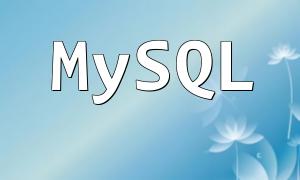In PHP development, M error messages often appear. These errors are usually related to configurations or settings in the code. If you're a beginner, understanding these error messages and finding corresponding solutions can significantly improve development efficiency.
The common M error types in PHP include:
M1: Memory limit exceeded
M2: Time limit exceeded
M3: File upload size exceeded
The M1 error occurs when the memory required by the PHP script exceeds the configured memory limit. You can resolve this by adjusting the memory limit in the php.ini configuration file:
memory_limit = 256MIncreasing the memory limit allows the script to use more memory, which helps avoid the M1 error.
The M2 error occurs when the script execution time is too long. You can find the following configuration in the php.ini file and adjust it:
max_execution_time = 30By setting the execution time to a longer duration, such as 120 seconds, you can avoid time limit errors.
When uploading files, if the uploaded file exceeds the maximum allowed size on the server, the M3 error will occur. You can modify the following configurations to allow larger file uploads:
upload_max_filesize = 10MAdjusting these values according to your needs will allow for larger file uploads.
When you encounter an M error, follow these steps to troubleshoot and resolve the issue:
Check the error logs to identify the specific cause of the M error.
Adjust the relevant parameters in the php.ini configuration file based on the error type.
Restart the web server to apply the changes.
Finally, test the code to ensure the error has been resolved successfully.
Understanding and resolving PHP M errors is an important step in improving development efficiency. By properly configuring the PHP environment, developers can avoid common errors and focus on code implementation and optimization. We hope the analysis and suggestions provided in this article will help you better manage your PHP environment and ensure the stability and efficiency of your applications.









